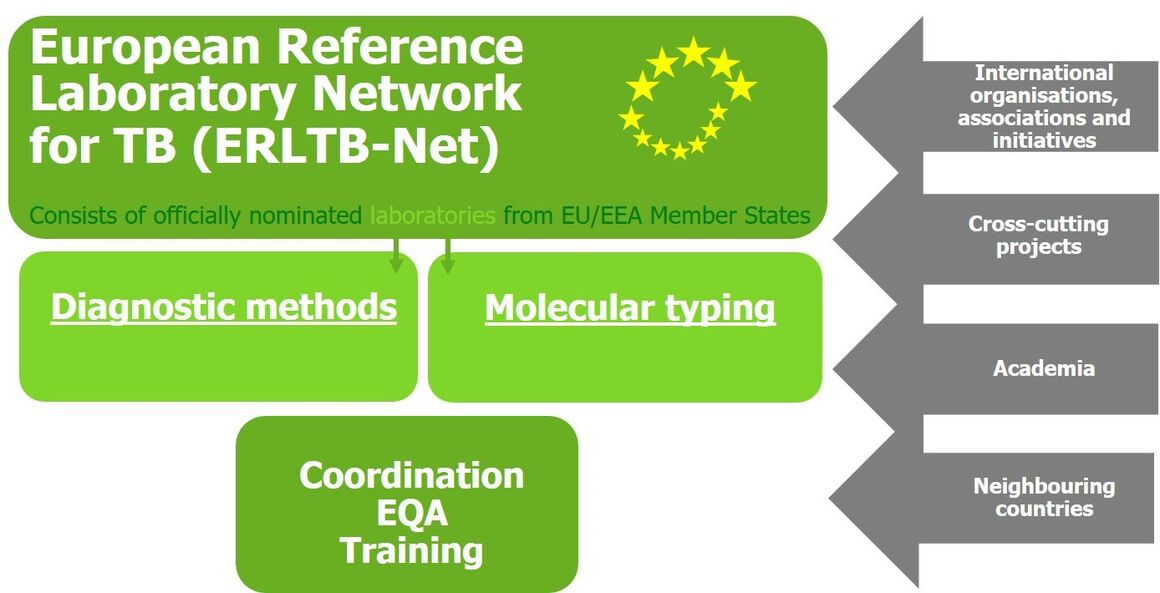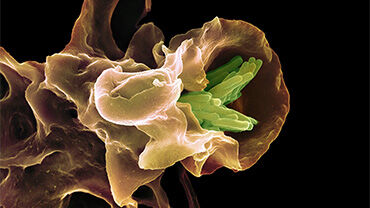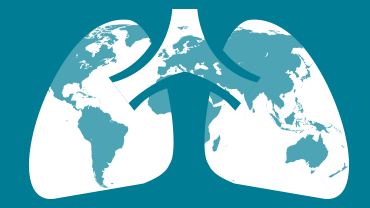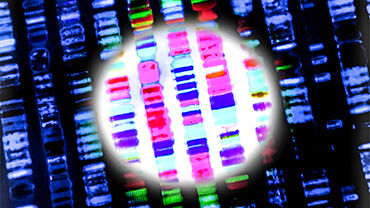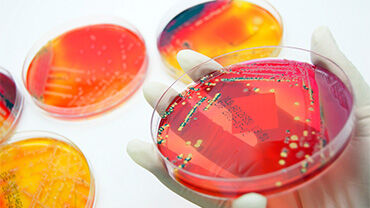European Reference Laboratory Network for TB (ERLTB-Net)
ECDC launched the European Reference Laboratory Network for TB (ERLTB-Net, formerly ERLN-TB) in January 2010. EU/EEA countries have officially nominated one or two laboratories with reference functions for diagnostics and/or molecular typing. The network supports countries in ensuring the provision of reliable and timely diagnostic services and ECDC in its alert and response functions relating to TB outbreaks.
The main activities of the network are:
- to act as a reference point for laboratory diagnostic methods, and molecular typing within the EU/EEA;
- to provide External Quality Assessment (EQA) schemes;
- to provide training activities within the network to ensure EU-wide capacity building;
- to coordinate and develop services.
Reference point for laboratory diagnostic methods and molecular typing
ERLTB-Net acts as a reference point for laboratory diagnostic methods in the EU/EEA. For this purpose the network has compiled the ‘Handbook on TB laboratory diagnostic methods for the European Union’, which is revised at regular intervals. This handbook sets out key laboratory diagnostic methods and their protocols in areas of TB diagnosis, ranging from microbiological diagnosis of active TB to the diagnosis of latent TB infection. The network also gathers and compiles Mycobacteria strains and samples for reference purposes.
EQA schemes
The network has developed and implements an EQA system for diagnostic methods and for molecular typing methods – i.e. mycobacterial interspersed repetitive units - variable number of tandem repeats (MIRU-VNTR) and whole genome sequencing (WGS).
Training activities within the network
The network offers training on laboratory diagnosis of TB, laboratory management and assessment of national TB laboratory networks. The network has three types of training activities:
- EU-wide training programme for tuberculosis laboratory experts
- Workshops
- Staff exchange visits.
Coordination and development
ERLTB-Net synergises its activities with other initiatives, such as the Global Laboratory Initiative and European Laboratory Initiative. The network holds annual meetings, including capacity building workshops on different topics for all its members. It also promotes twinning arrangements between network members. The network maintains a ‘bio-book’, outlining all the functions of the network laboratories, individual members’ expertise and contact details, to facilitate cross-border collaboration.
ERLTB-Net structure
